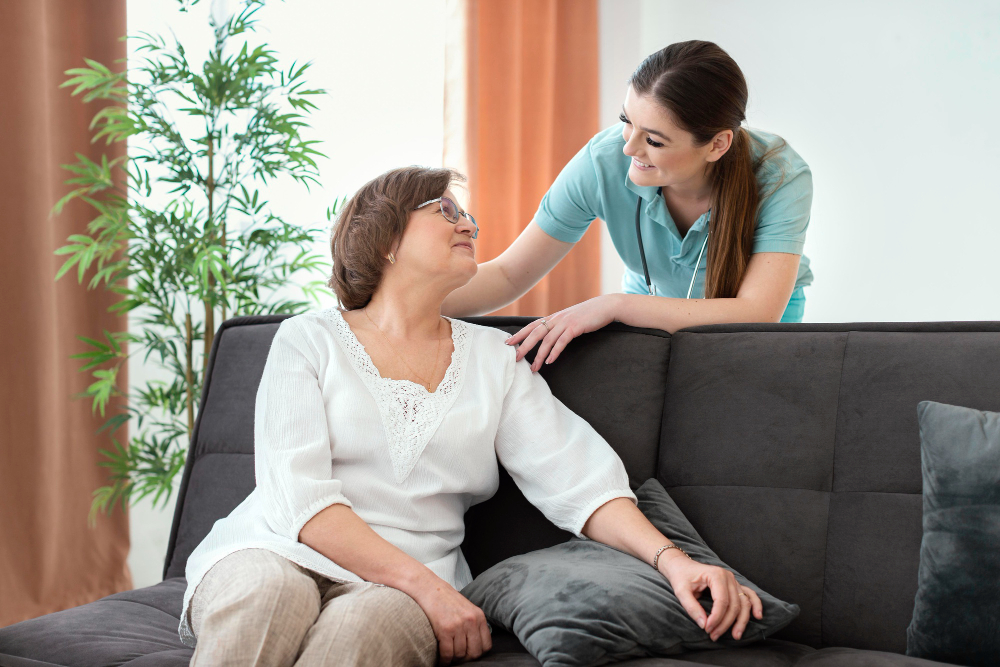Introduction
Caring for older adults is a big responsibility. Many families want to know how to take care of elderly loved ones at home. With the right support, seniors can enjoy a better quality of life. In fact, good elderly care helps prevent health problems and keeps seniors happy. This guide offers simple caregiver tips and advice for senior health and home care for seniors.
Understanding Elderly Needs
Every senior has unique needs. However, most elderly people need help in three main areas: physical, emotional, and social.Physical needs: These include help with walking, eating, bathing, and taking medicine.Emotional needs: Seniors may feel lonely or worried. They need love, patience, and understanding.Social needs: Staying connected with friends and family is important for mental health.
Because needs can change over time, it is important to check in often. This helps you adjust your care as needed.
Daily Care Tips for Caregivers
Daily routines help seniors feel safe and comfortable. Here are some key caregiver tips for daily elderly care:Nutrition: Offer balanced meals with fruits, vegetables, and whole grains. Also, make sure they drink enough water.Hygiene: Help with bathing, brushing teeth, and changing clothes. Cleanliness prevents infections.Medication management: Use a pill organizer and set reminders. Always follow the doctor’s instructions.Mobility support: Encourage gentle exercise. For example, short walks or stretching can improve strength and balance.
Because routines can change, stay flexible and patient. Always ask seniors about their comfort and preferences.
Creating a Safe Home Environment
Home safety is key for elderly care. Many seniors are at risk of falls or injuries. Therefore, making the home safer is very important.Remove loose rugs and clutter from walkways.Install grab bars in bathrooms and near stairs.Use night lights in hallways and bedrooms.Keep important items within easy reach.Check that smoke detectors and alarms work well.
With these steps, you can lower the risk of accidents at home. For extra safety, consider using medical alert devices.
Emotional and Mental Wellbeing
Older adults need more than just physical care. Their emotional and mental health matters too. Because loneliness can harm health, try these tips:Spend time talking and listening to them every day.Encourage hobbies like reading, puzzles, or gardening.Invite friends or family for visits or phone calls.Help them join community groups or senior centers.
Even small acts of kindness can make a big difference. If you notice signs of sadness or confusion, talk to a doctor.
When to Seek Medical Help
Sometimes, seniors need more than home care. It is important to know when to call a healthcare professional. Watch for these warning signs:Sudden changes in mood or behaviorUnexplained weight loss or poor appetiteFalls or frequent injuriesProblems with memory or confusionDifficulty breathing or chest pain
Because regular check-ups help catch problems early, schedule doctor visits as advised. If you are unsure, always ask a medical expert for advice.
Self-Care for Caregivers
Taking care of seniors can be hard work. Therefore, caregivers must also care for themselves. Here are some ways to stay healthy and strong:Take short breaks during the day to rest.Ask friends or family for help when needed.Join caregiver support groups for advice and comfort.Consider respite care services for extra support.Eat well, exercise, and get enough sleep.
Because your health matters, do not ignore signs of stress or burnout. Reach out for help if you feel overwhelmed.
Conclusion and Call-to-Action
In summary, knowing how to take care of elderly loved ones is important for their health and happiness. With the right caregiver tips, you can make a big difference in their lives. Remember, every senior is unique. Therefore, always listen to their needs and adjust your care as needed. Consult a healthcare professional for personalized guidance on elderly care.

